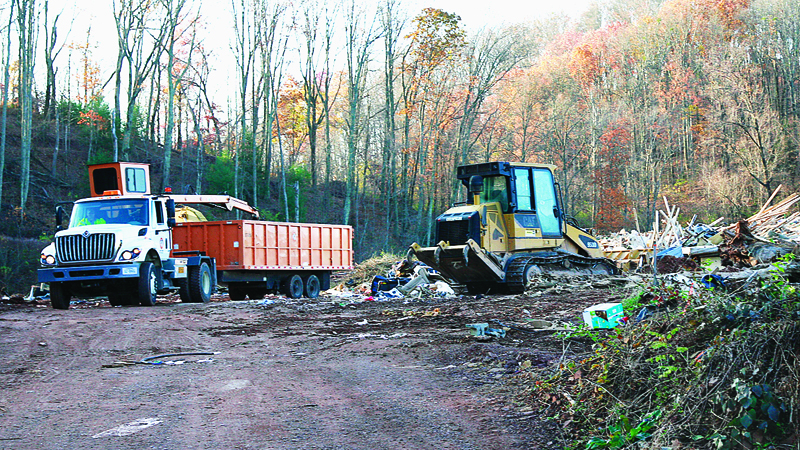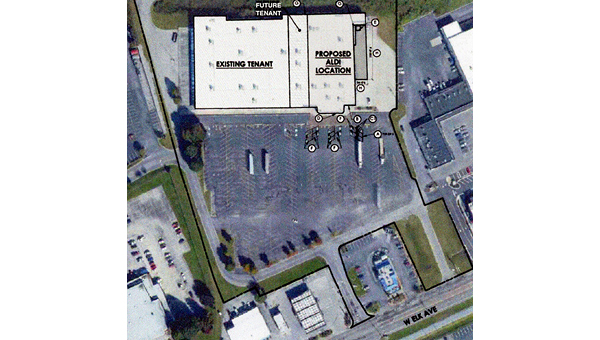Landfill officials looking at waste disposal options
Published 8:48 am Tuesday, January 9, 2018

- Star Photo/Abby Morris-Frye County officials are looking at a variety of options for disposing of demolition waste, including the possibility of expanding the current transfer station to handle the waste.
As Carter County awaits the results of surveys to help determine how much life is left in the county’s landfill, officials are exploring a variety of options for dealing with solid waste.
In late 2017, Kim Raia, an environmental consultant from the University of Tennessee’s County Technical Assistance Service, estimated the county’s “demolition” (or “demo”) landfill only has about three to five years of service left. The county is now faced with the future closure of the demo landfill and the possibility of having to open a new landfill site.
Trending
The demo landfill is the depository for waste such commonly associated with demolition such as plywood, sheetrock, shingles, lumber, as well as furniture such as couches and mattresses. No household waste goes into the demo site.
The county’s Class I landfill, which took household waste, has been closed for several years. The county currently operates a transfer station for household waste where county residents drop their garbage at the landfill, and the county then pays to haul and dispose of it at a private landfill facility.
Carter County Solid Waste Director Benny Lyons recently told members of the county’s Landfill Committee that he is conducting a study to seek an alternative way to handle demolition waste without the cost of having to open a new landfill disposal site. Lyons said he would be looking at the feasibility of expanding the landfill’s current transfer station to accept demo materials as well as household garbage and then transferring both types of solid waste to private landfills.
Under the plan, the county’s current demo site would “go dormant,” according to Lyons. The current site would be available for the county to use in the event of an emergency, such as major storms for floods, to get rid of demo materials, but everyday demo drop-offs would go through the transfer station to another landfill.
Under this proposal, the county would not have to undergo the costly process of opening a new landfill or paying the fees to close and monitor the current demo site.
“I think with the money situation the county is in, this might be what’s best,” Lyons said.
Trending
Lyons and his staff will be looking at a cost analysis to look at the cost and feasibility of expanding the current transfer station. Part of that analysis will be to determine if the transfer station at the landfill has enough space to expand on site.
“We want to try to stay there,” Lyons said, adding that will keep costs down by being able to use the scales and other equipment already in place.
After it is determined whether or not the expansion is feasible, landfill officials will begin looking at the cost of operating the transfer station, including whether current tipping fees for demo disposal would cover the cost of transporting demo waste to the private landfill and pay to dispose of it. If possible, Lyons said the county will have to look for a way to fund the operation, whether it is through county budget funding or a possible increase in tipping fees.
“We’ve not had an increase at the landfill in 10 years,” Lyons said. “Even though our disposal costs have gone up, we’ve not changed.”
Lyons said the analysis and study could take some time to complete and he was not sure when the information could be available for the Landfill Committee.





